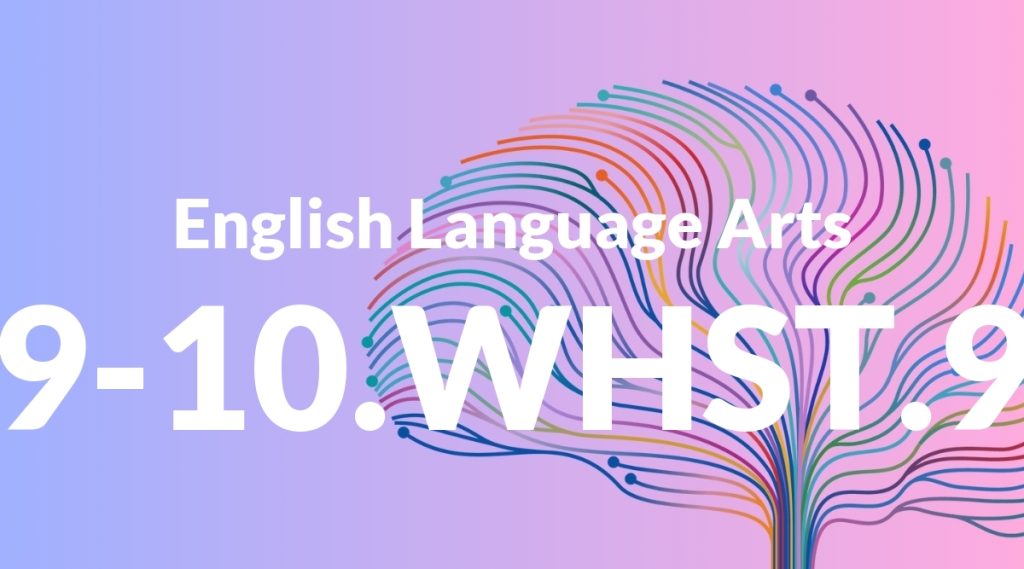Standard: 9-10.WHST.9 – Draw evidence from informational texts to support analysis, reflection, and research.
Grade level: Grade 9-10
Subject: English Language Arts
Domain: Writing: History, Science & Technical Subjects
Teacher Overview
This standard emphasizes the importance of drawing evidence from informational texts to support analysis, reflection, and research. It is crucial for students to develop these skills to succeed in both academic and real-world contexts, where evidence-based writing is essential. Students should be familiar with reading and comprehending informational texts and have basic writing skills.
After mastering this standard, students will be able to conduct advanced research, critically analyze texts, and integrate multiple sources of information into their writing.
Common Misconception 1
A common misconception is that all informational texts are equally reliable. This is incorrect because the credibility of a source can vary based on factors such as the author’s expertise, the publication date, and the evidence provided.
Intervention 1
To address this misconception, teach students how to evaluate the credibility of sources by examining the author’s credentials, the publication date, and the evidence provided in the text.
Common Misconception 2
Another misconception is that summarizing a text is the same as analyzing it. Summarizing involves restating the main points, while analyzing requires examining the components of the text and their implications.
Intervention 2
Encourage students to distinguish between summary and analysis by practicing breaking down texts into their key components and discussing the implications of these components.
Prerequisite Knowledge
Students should have a basic understanding of how to read and comprehend informational texts, as well as foundational skills in writing coherent paragraphs and essays.
Subsequent Knowledge
Students will develop advanced research skills, the ability to critically analyze texts, and the capability to integrate multiple sources of information into their writing.
Instructional Activities
- Conduct a source credibility evaluation exercise.
- Practice breaking down texts into their key components.
- Write research papers using multiple sources.
- Analyze historical documents for evidence.
- Create science reports based on informational texts.




